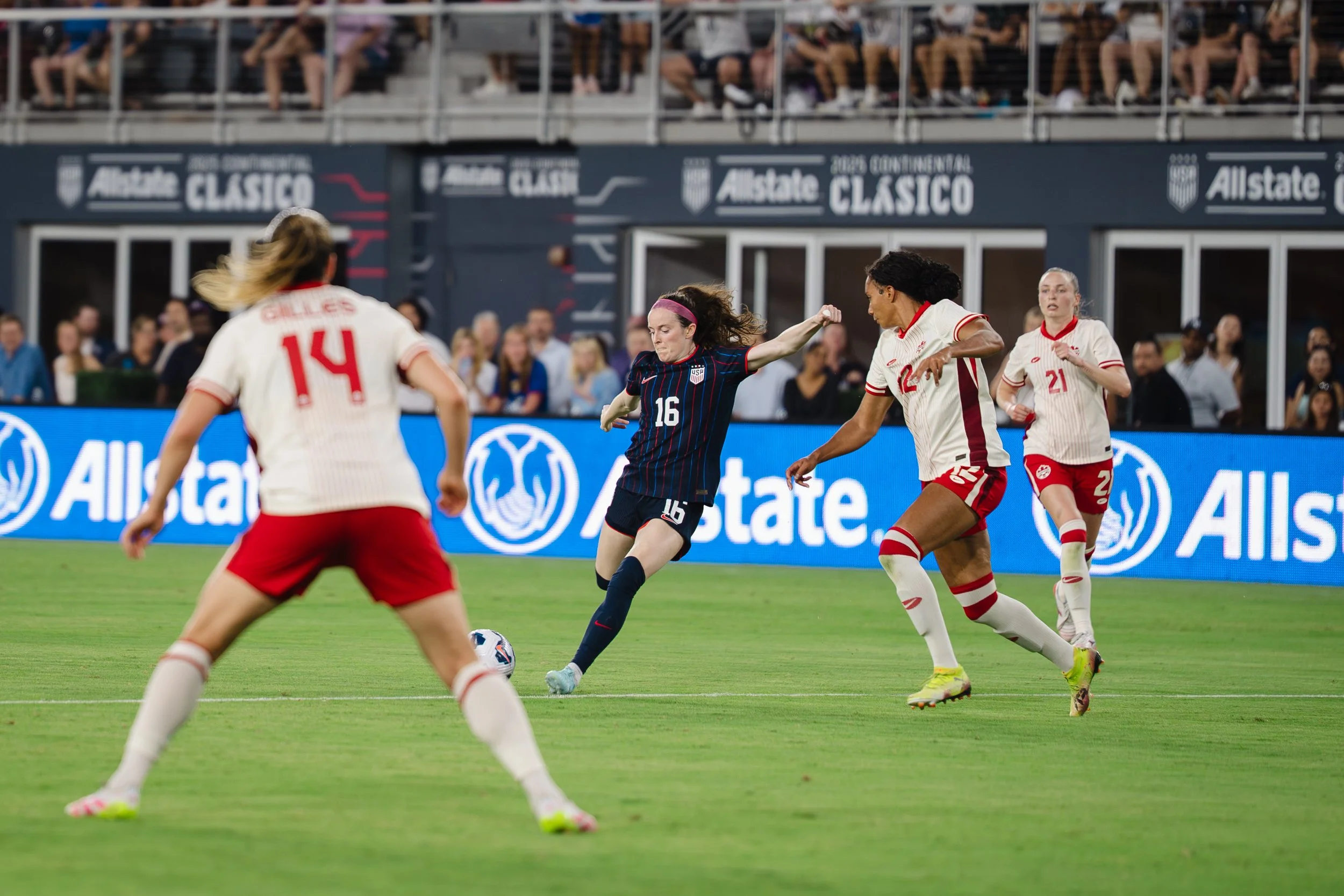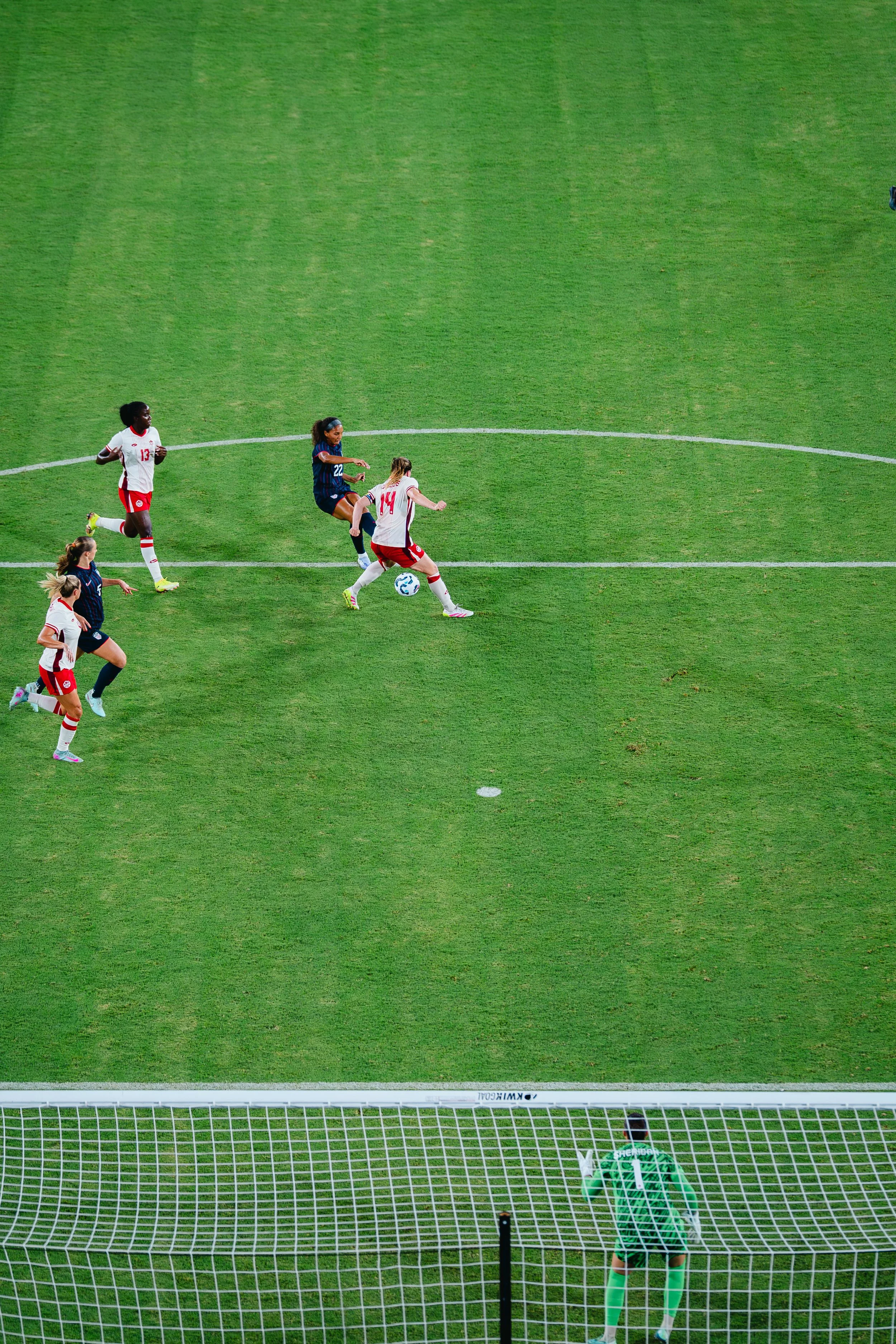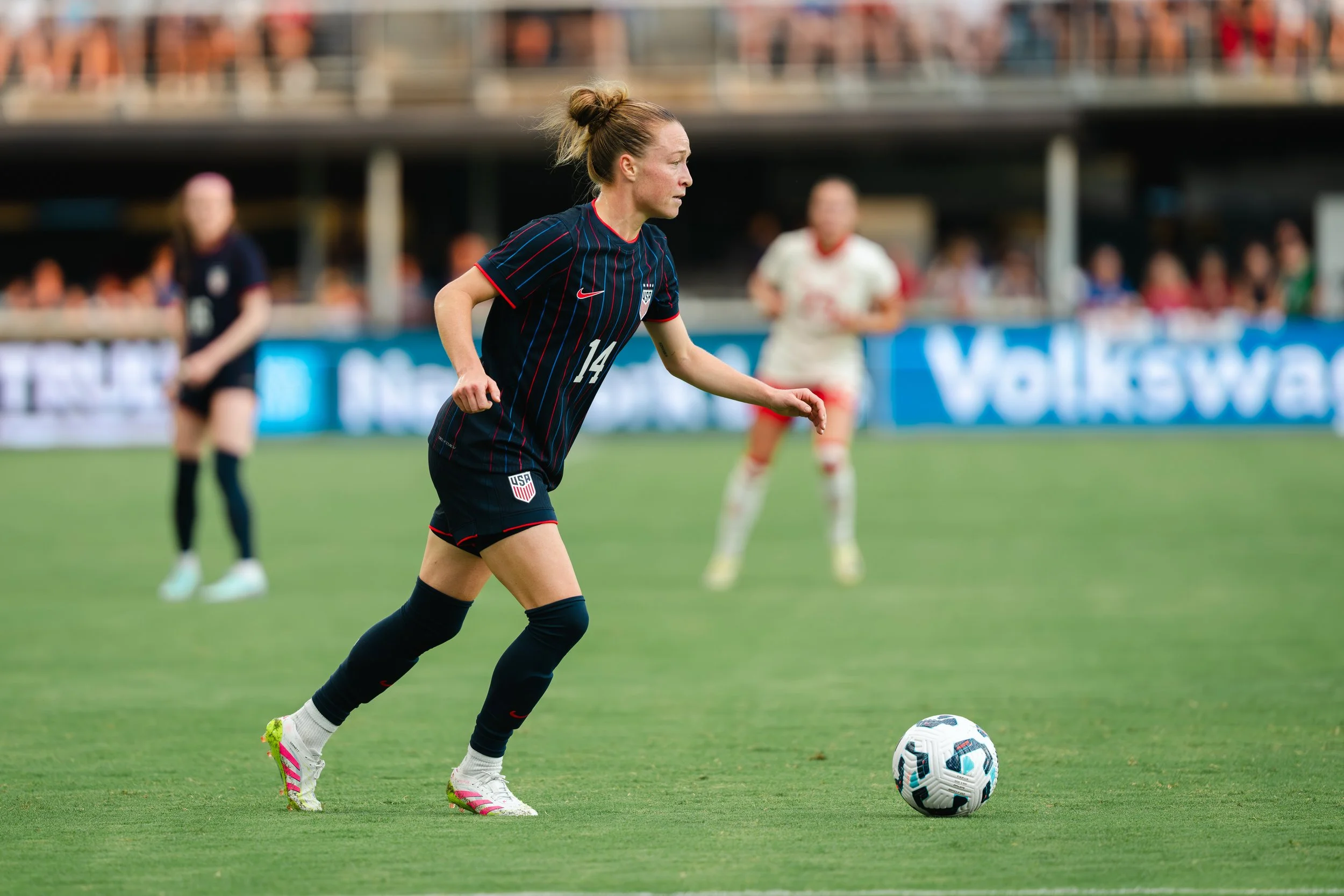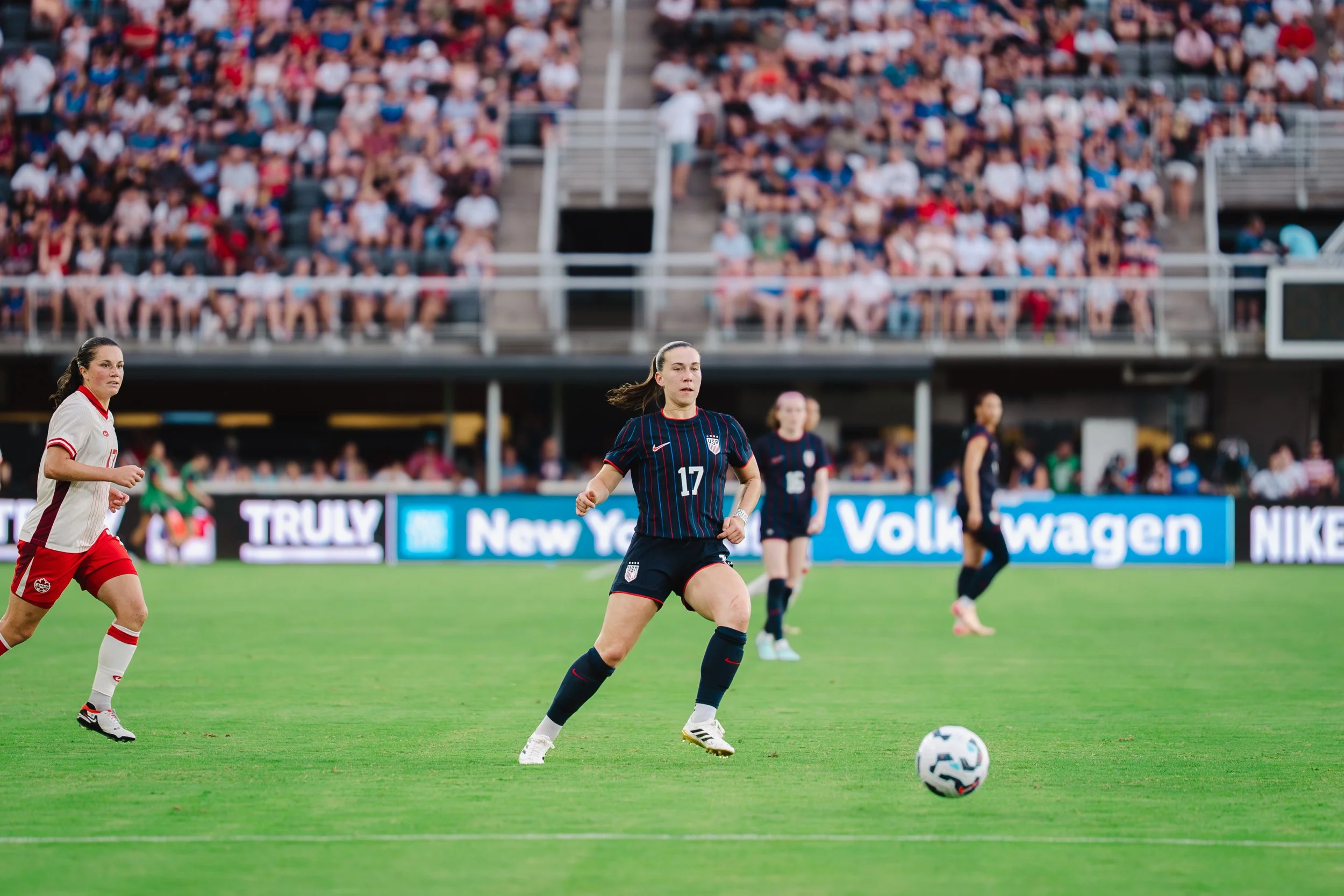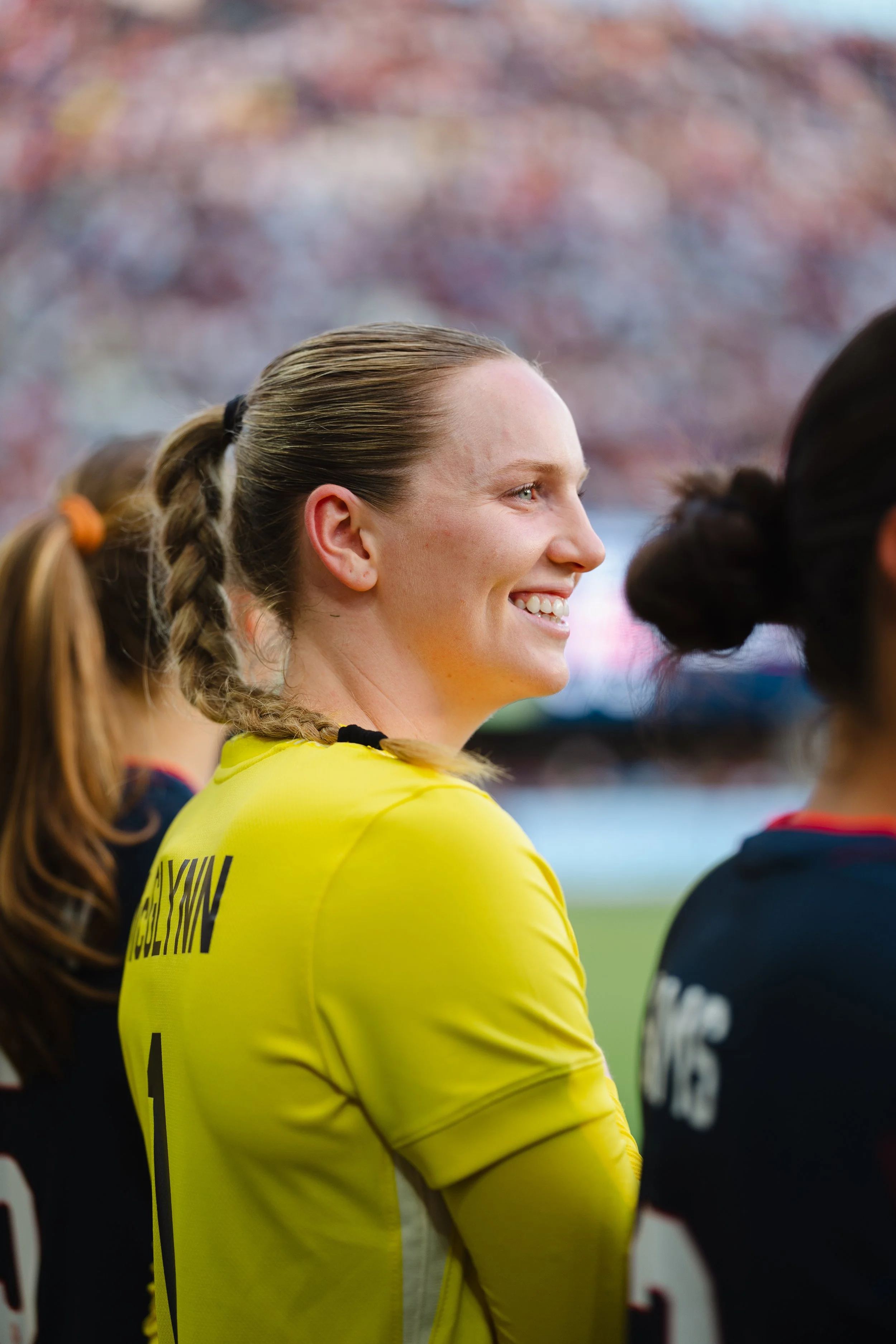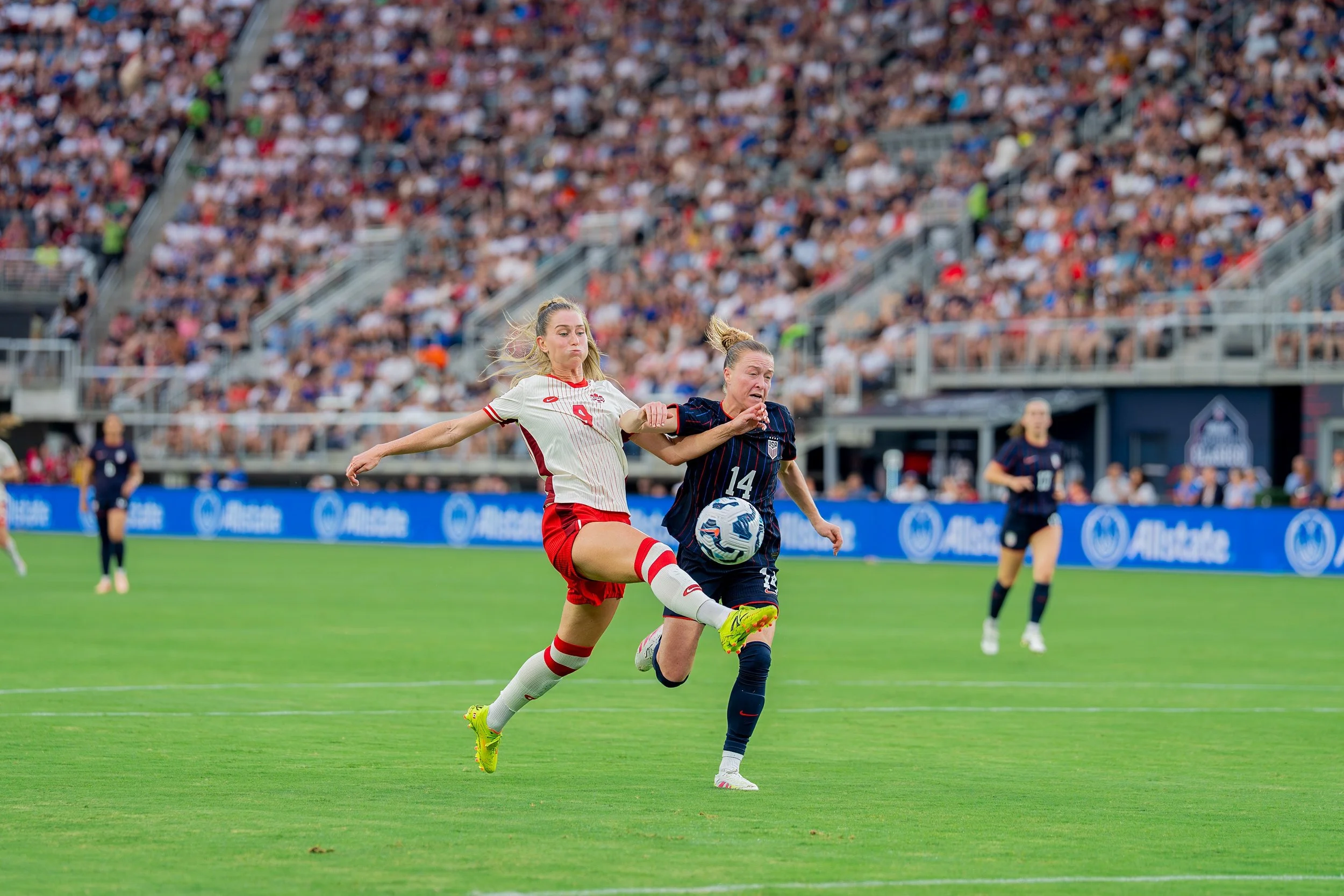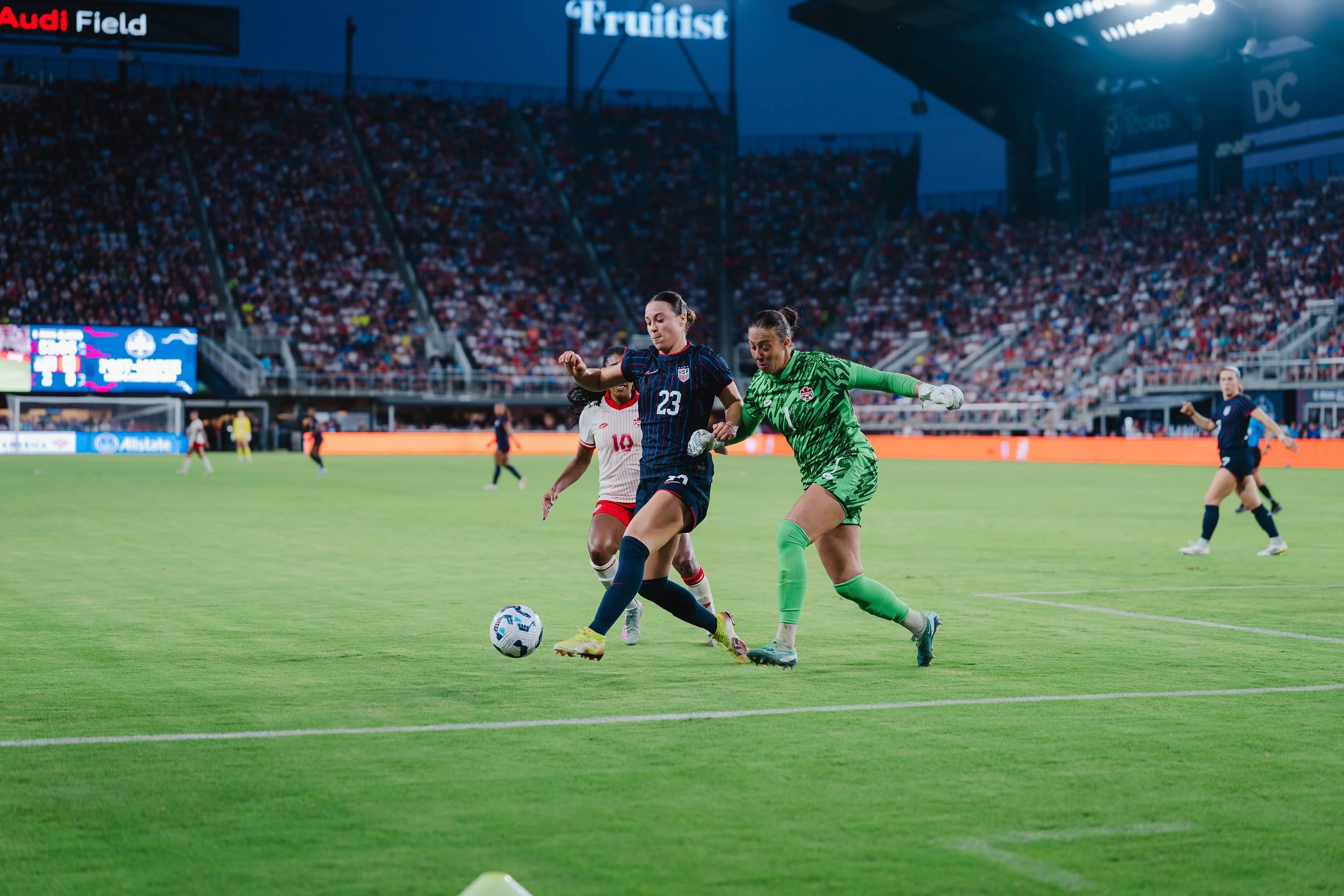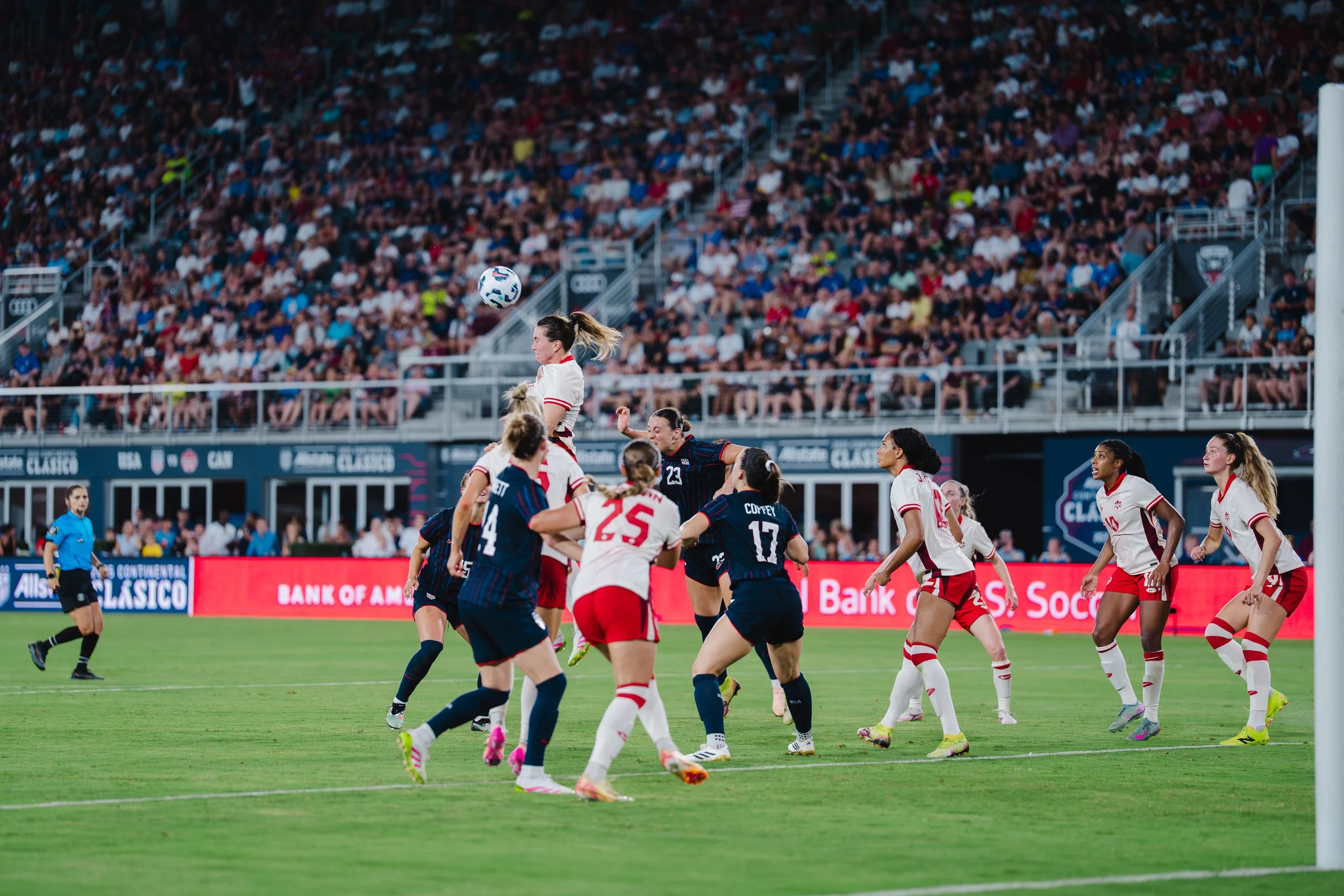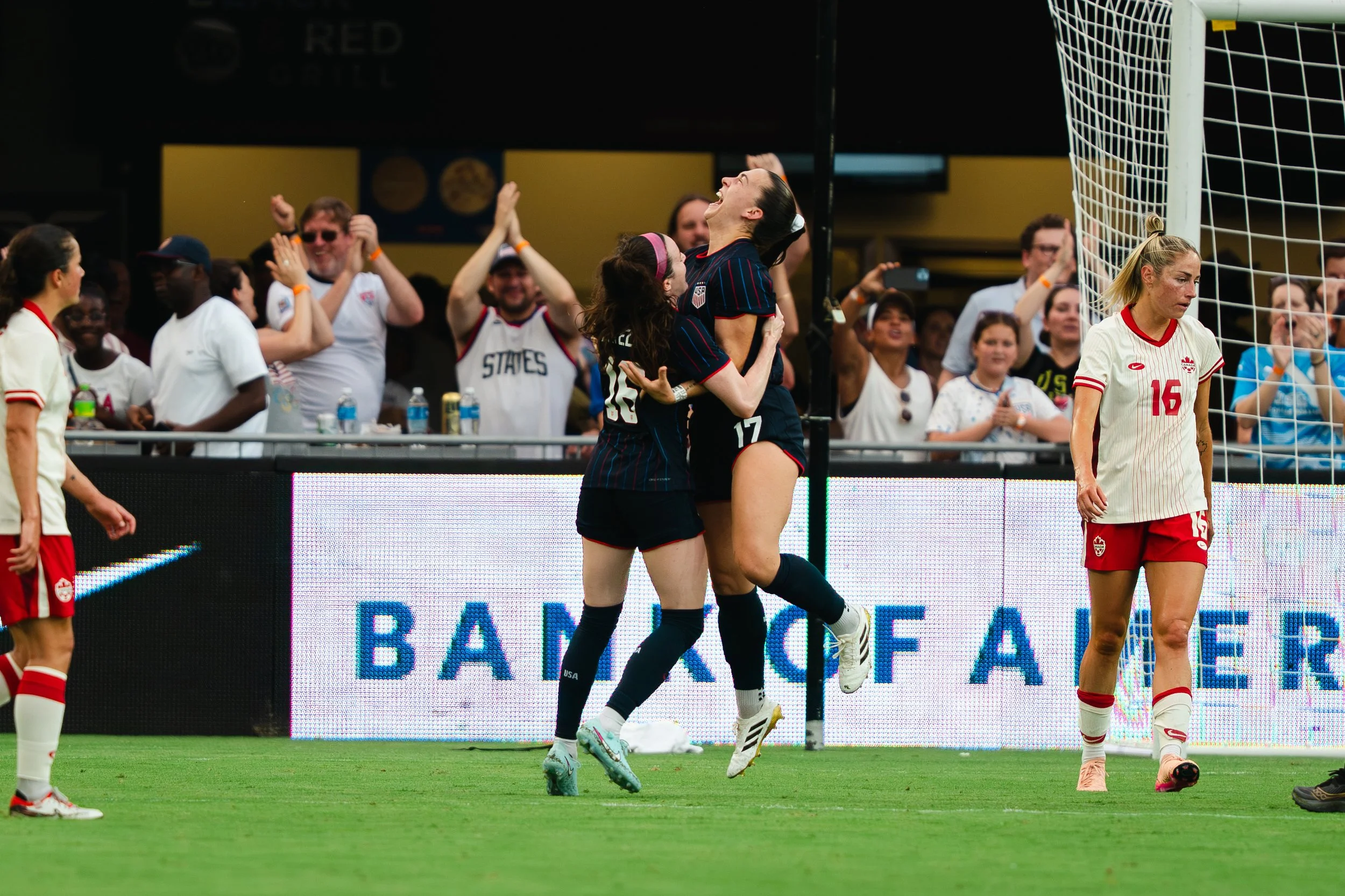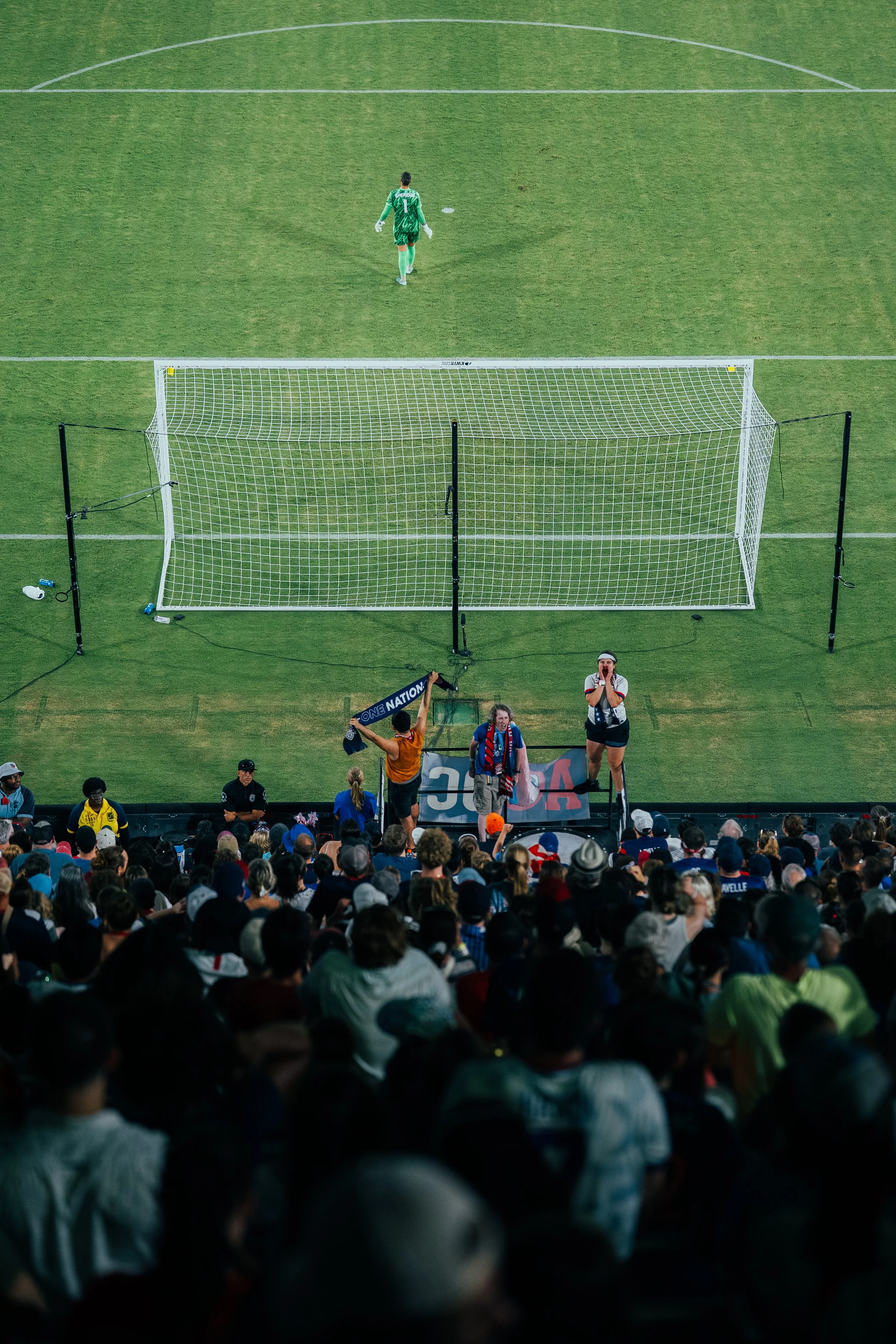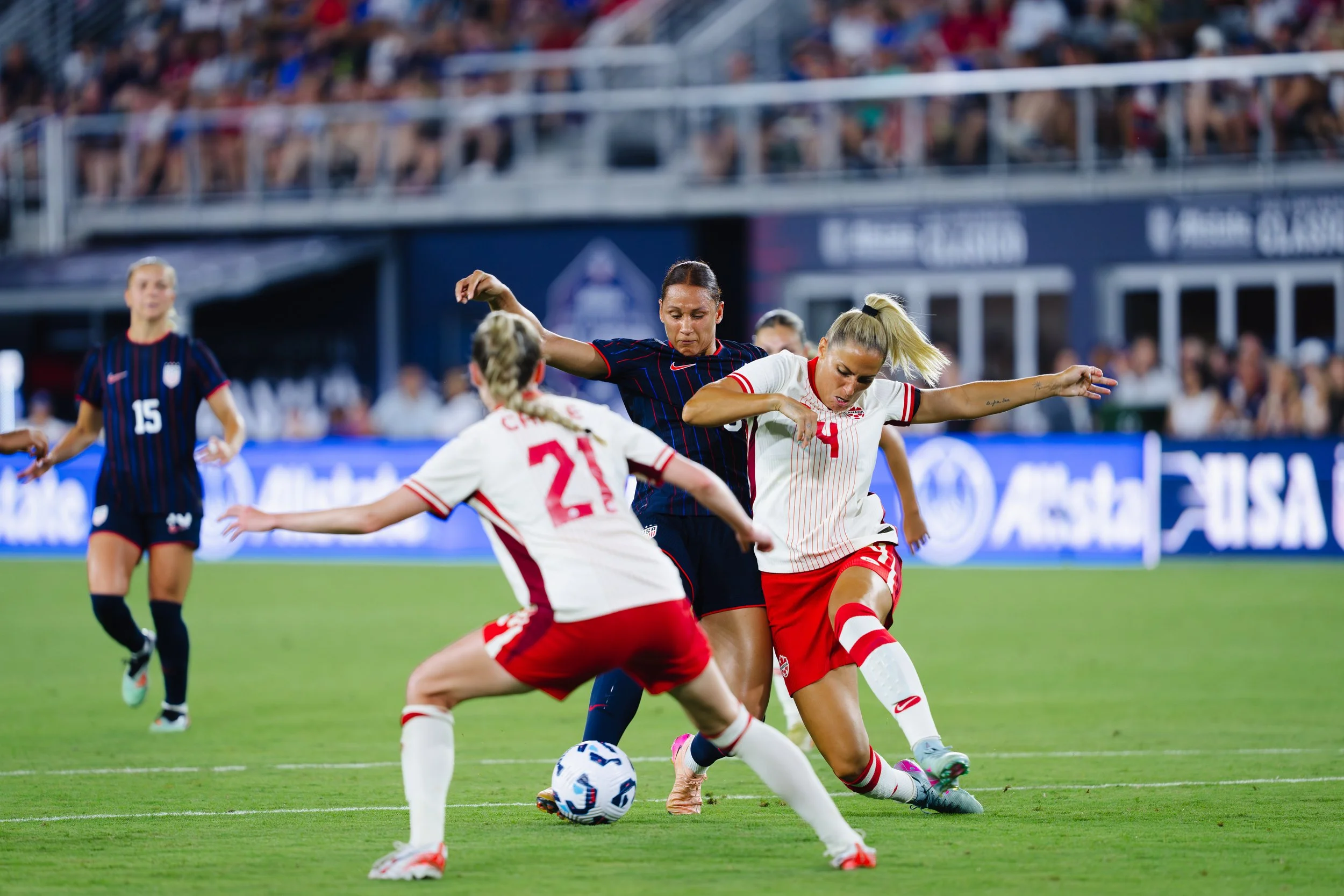Three Goals, No Questions: USWNT dominates Canada 3-0 in final game of summer
In front of a sellout crowd of 19,215 braving the stifling D.C. heat, the U.S. Women’s National Team closed out their summer with a commanding 3–0 win over Canada in the Continental Clásico. Officially a friendly, the match felt anything but. Emma Hayes said beforehand that this one was personal—and her squad played like it. From the opening whistle, the top-ranked Americans imposed their style, their tempo, and their intent on a Canadian side that, despite its familiarity with the U.S. roster—12 of its players are regulars in the NWSL—couldn’t keep pace.
This summer has been a story of progression for the U.S., not just results. With Hayes at the helm for 13 months, the team has posted a 20–2–2 record, won Olympic gold, and managed a seamless, almost generational shift without skipping a beat. The performance against Canada was a case study in what that looks like when it clicks. Blistering counters, surgical set pieces, and a midfield press that smothered Canada’s attempts to breathe.
At the heart of it all was the return of Rose Lavelle. After six months out with ankle surgery, she made her first start back—and immediately made it clear that this team still runs through her. In the 17th minute, it was Lavelle who delivered a curling free kick into the box that deflected twice before falling to Sam Coffey, who buried it for her fourth career goal and third of the summer. Moments later, Lavelle nutmegged her way through midfield traffic, gliding with that familiar ease that had been missing for far too long. Her corner delivery in the 36th minute found 19-year-old Claire Hutton, who timed her jump perfectly and headed in her first international goal. Set pieces—an area Hayes has openly emphasized all summer—had suddenly become weapons again. And Rose was the one pulling the strings.
There’s something about Lavelle that unlocks a different rhythm in this team. She’s not just a creator, she’s a connector. Her presence elevates tempo, decision-making, even body language. When she came off in the 67th minute to a standing ovation, fans weren’t just applauding a solid outing—they were recognizing how much her return reshapes the outlook of this team heading into the fall.
But if Lavelle provided the polish, the depth told the bigger story. The USWNT under Hayes has become a relentless engine of growth, with 24 players making their debut this year alone. This isn’t a team afraid of change—it’s a team accelerating through it. Lynn Biyendolo, making just her second start, set the tone early with her pace and verticality, nearly scoring off a crossbar smash in the 79th. Claudia Dickey, in only her second cap, came up with a massive moment just after the opening goal—a quick-reaction save on Jordyn Huitema followed by a smother of the rebound. It was her second straight clean sheet and another step forward in building real depth in goal.
The third and final goal came in the 89th minute and felt like a perfect exhale. Tara McKeown, playing in her club’s home stadium on her birthday, charged down the right flank and picked out Yasmeen Ryan—who took one touch, then delivered a low left-footed strike into the far corner for her second goal in as many games. It was sharp, fresh-legged football—and a fitting final punctuation mark for a match that could have easily ended 5–0.
Canada, for all their experience and intention, looked a step behind as the match wore on. There was a noticeable lack of creativity in the final third, and Casey Stoney’s high press gamble backfired as the U.S. picked them apart with composure and clarity. The U.S. outshot Canada 22 to 7 and held 66% of possession. By the time the final whistle blew, it was clear that while Canada is rebuilding, the U.S. is already built—and still adding pieces.
As the team heads into a break until October, it’s hard not to take a step back and look at the broader picture of this year’s USWNT run. This is a team in flux, technically, but you wouldn’t know it based on the convincing performances that the youth has delivered. They’ve integrated new faces, adjusted to a philosophy, and maintained dominance without hesitation. That’s not something every program can say. Look no further than the U.S. men’s side, where the struggle to integrate younger talent and develop chemistry has led to erratic performances and embarrassing losses in the lead-up to their own World Cup cycle. While the men wrestle with questions of identity, cohesion, and accountability, the women are putting on a clinic in how to evolve and win. Emma Hayes isn’t just building a team for the next World Cup—she’s laying a foundation that could carry this program deep into the next decade. The win against Canada didn’t just cap off an undefeated summer—it clarified the direction this team is heading. Hayes has built a system rooted in clarity, trust, and adaptability. Players come in and look ready. Moments happen because they’re prepared, not improvised. And as a new generation emerges in real time, one thing is becoming clear: Emma Hayes isn’t just preparing the USWNT for Brazil. She’s building a new standard that may be the bar we need to expect for the US Soccer program as a whole.
